THE PUNCH PEOPLE
Meet Sacha Aguila:
Founder of Treelogy
Treelogy is a regenerative farm and ethical brand rooted in East Bali, dedicated to producing premium Moringa while uplifting local communities and restoring the land. Guided by the principles of People Care, Earth Care, and Future Care, Treelogy goes beyond sustainability to cultivate a future where farming nourishes both people and planet.
INTERVIEW
“We don't want to just shout
solutions — we want to show them.”
Can you share a bit about yourself and the story behind Treelogy?
'I’m Sacha Aguila, the founder of Treelogy, a regenerative brand dedicated to producing the highest quality and most ethical Moringa. I was born in New Caledonia and spent my childhood traveling — from Sydney to Mauritius — before settling in Bali at the age of 13. After studying hospitality in Amsterdam and multimedia in Paris, I even spent six months training in Shaolin Kung Fu in China. But it was during the pandemic, back home in Bali, that the seeds of Treelogy were truly planted.
My family’s connection to Moringa goes back decades. My grandfather introduced it to villages in Africa as part of a nutrition mission. Just 10 grams a day was enough to help malnourished babies recover twice as fast. Seeing that power — and realizing how reliant Bali had become on tourism — my mother and I wanted to contribute to something more resilient and regenerative. That’s when Treelogy began to take shape.'
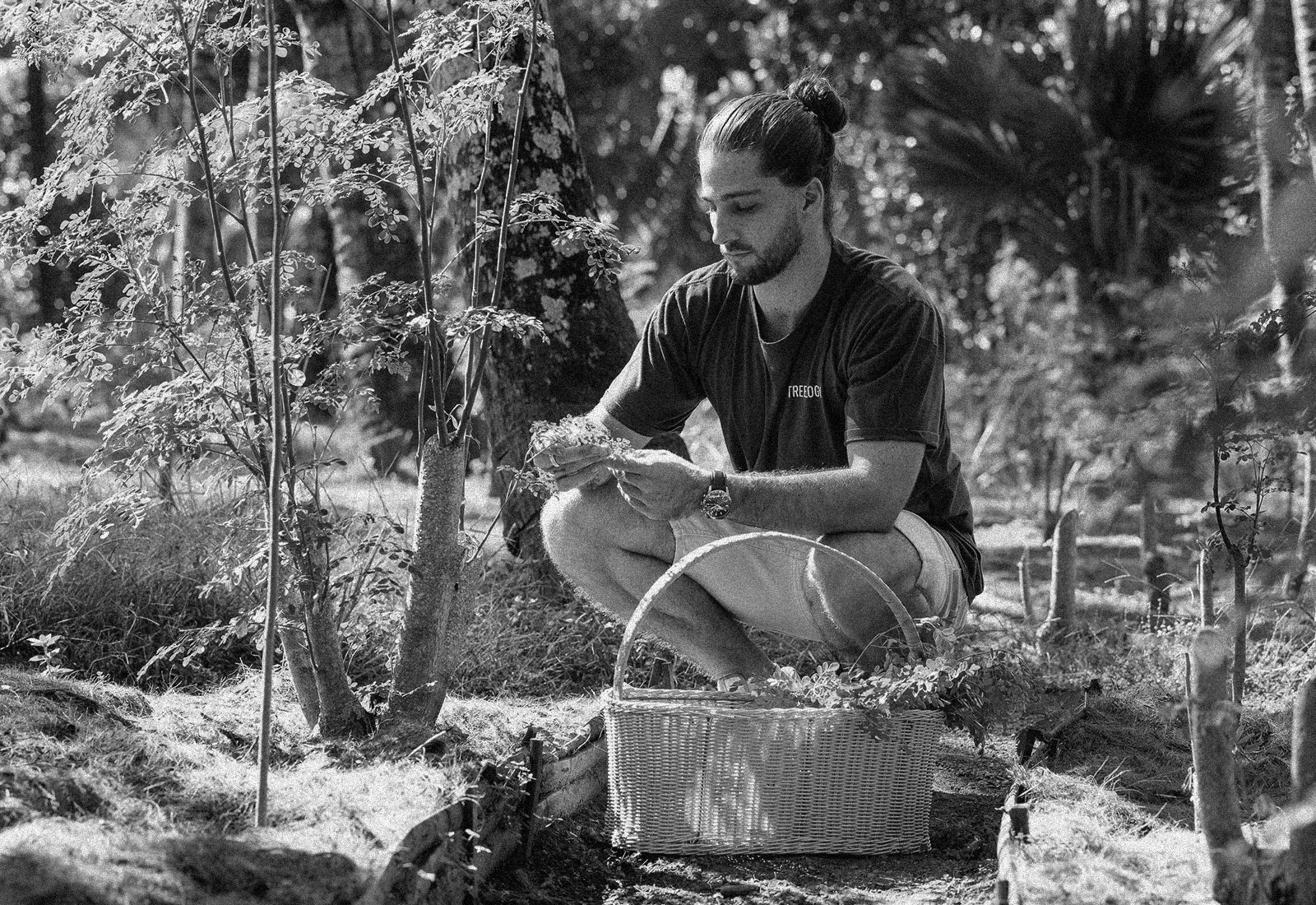
Treelogy is built on the ethics of People Care, Earth Care, and Future Care. How do these principles guide the way you operate?
These three ethics are inspired by both permaculture and the Balinese philosophy of Tri Hita Karana, which emphasizes harmony between people, nature, and spirit. At Treelogy, these principles shape everything we do — from how we treat the soil to how we treat each other.
People Care means crafting the best product for our customers, while also honoring and uplifting our farmers. We design the farm with permaculture methods to reduce labor and stress, and we pay regenerative wages — 40% above the regional minimum — because farming should be respected like teaching. Without farmers, we don’t eat.
Earth Care is about more than being organic. It’s about regeneration. We compost using farm waste, coconut husks, goat manure — all part of closing the loop and feeding the soil, not depleting it.
Future Care is about what we leave behind. Our farm is an open incubator. We welcome farmers from all over Indonesia to come and learn regenerative agriculture, for free. The goal is to create a ripple effect that improves lives and landscapes beyond our own.
What sets your Moringa apart — in both process and quality?
'We’re extremely precise. Harvesting begins at dawn, and the leaves are carefully separated from the stems by women from our community. This part is crucial — stems hold moisture and can oxidize the powder if not removed. We then wash, soak, and dehydrate the leaves slowly at low temperatures (around 38°C) to preserve the nutritional content.
Once dehydrated, the leaves are powdered and packed in sustainable, oxygen-compacting tin cans that extend shelf life naturally. The result? A premium Moringa that retains its full spectrum of nutrients — and a product you can feel good about, both physically and ethically.'
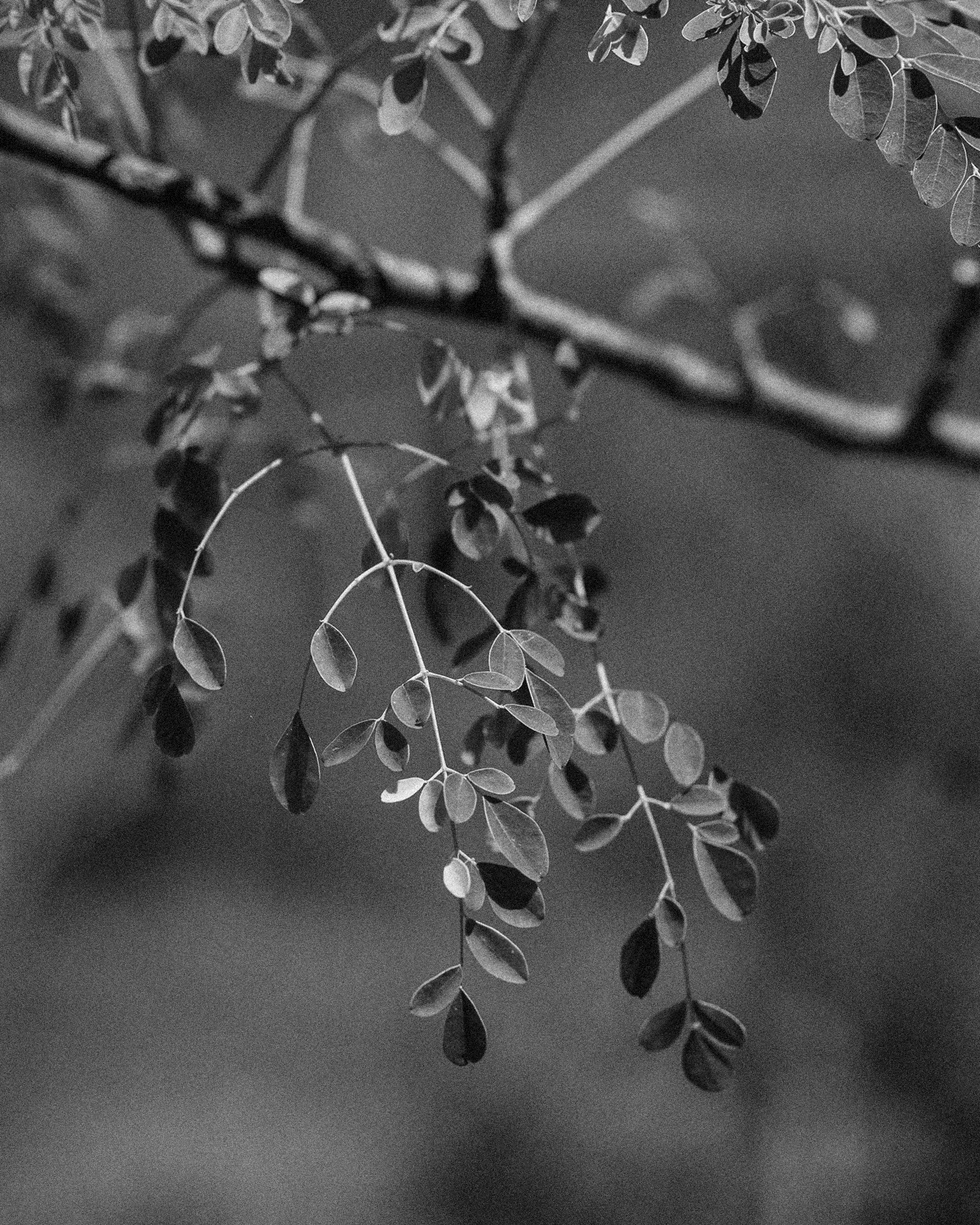
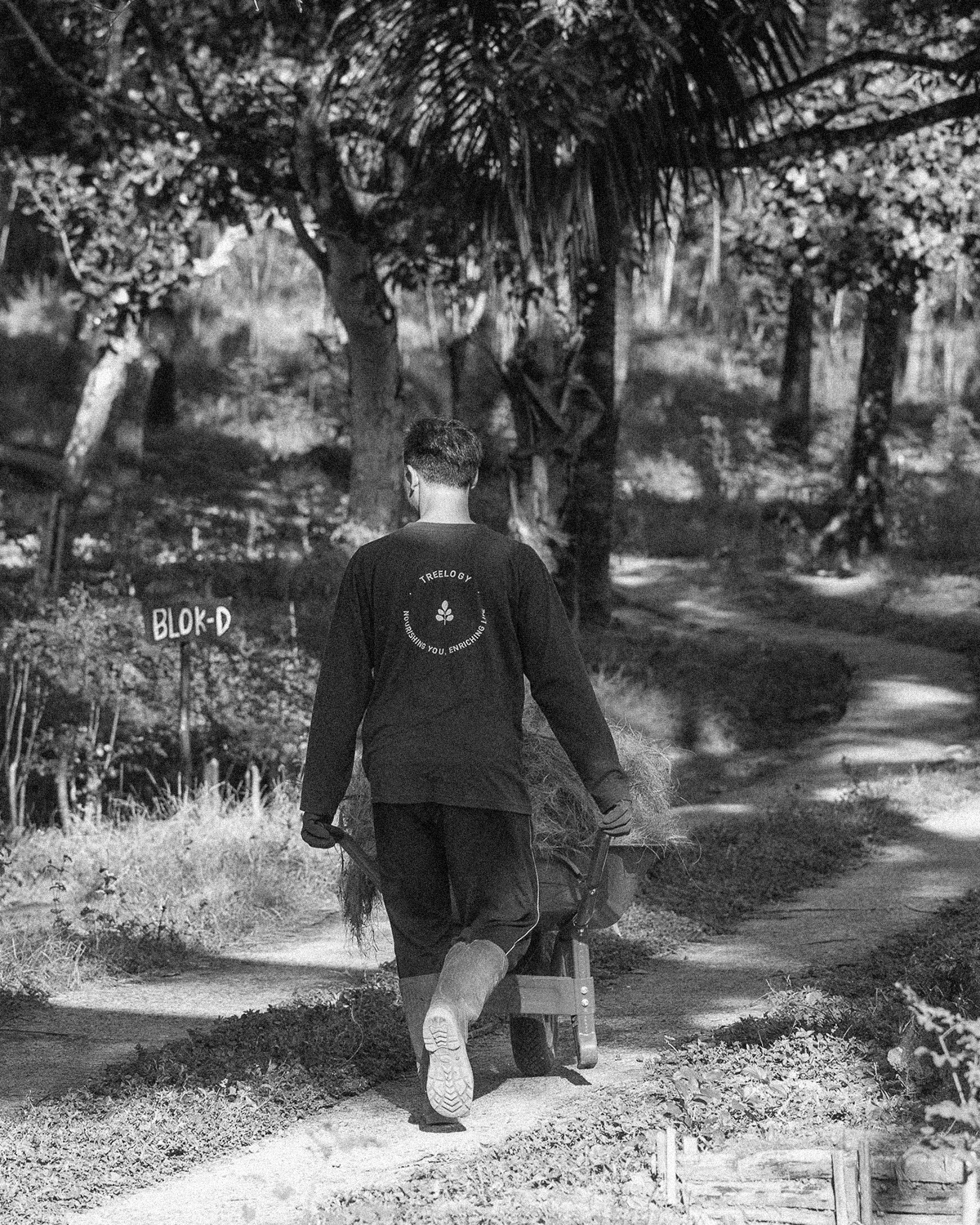
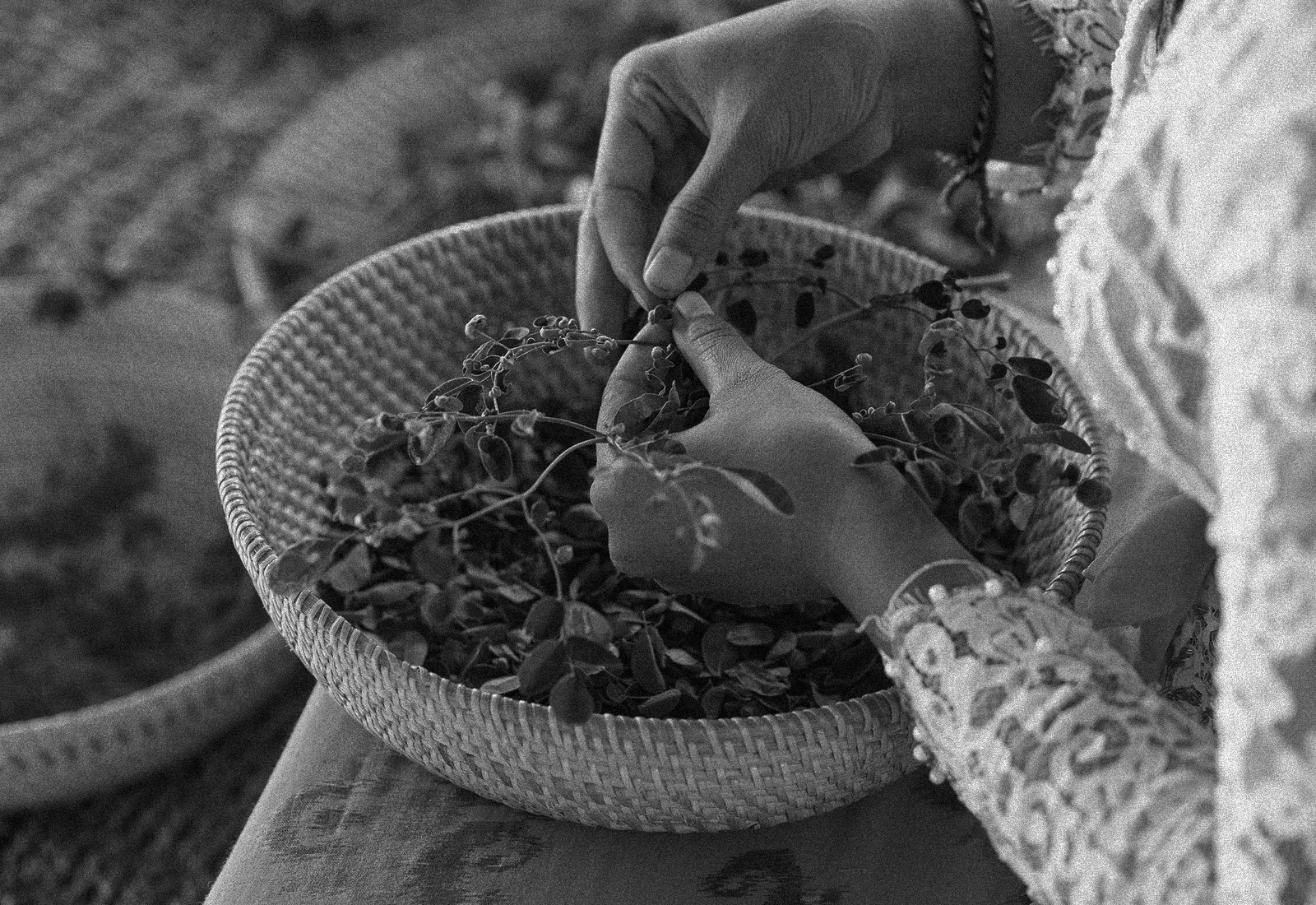
'“Sustainable” implies
maintaining the status quo —
but that’s not enough.'
You often emphasize the term "regenerative" over "sustainable." Why is that?
“Sustainable” implies maintaining the status quo — but that’s not enough. We need to rebuild what’s been lost. On our farm, regeneration means healing the soil, harvesting rainwater, producing our own compost, and integrating animals into the ecosystem. It means working with nature instead of against it.
We also believe in regenerative economics — salaries that allow our team to thrive, not just survive. In fact, we now have four generations from one family working on the farm. That sense of legacy and community is priceless.
Were there any challenges in embracing regenerative farming?
Many. Regenerative farming requires patience and constant observation. There’s no chemical quick-fix when a pest appears. We have to ask: why is it here? What’s the imbalance? The learning curve is steep and, at times, frustrating. Climate change also brings unpredictability — like longer rainy seasons that Moringa doesn’t tolerate well. But these challenges are part of the journey. Nature teaches us, if we’re willing to listen.
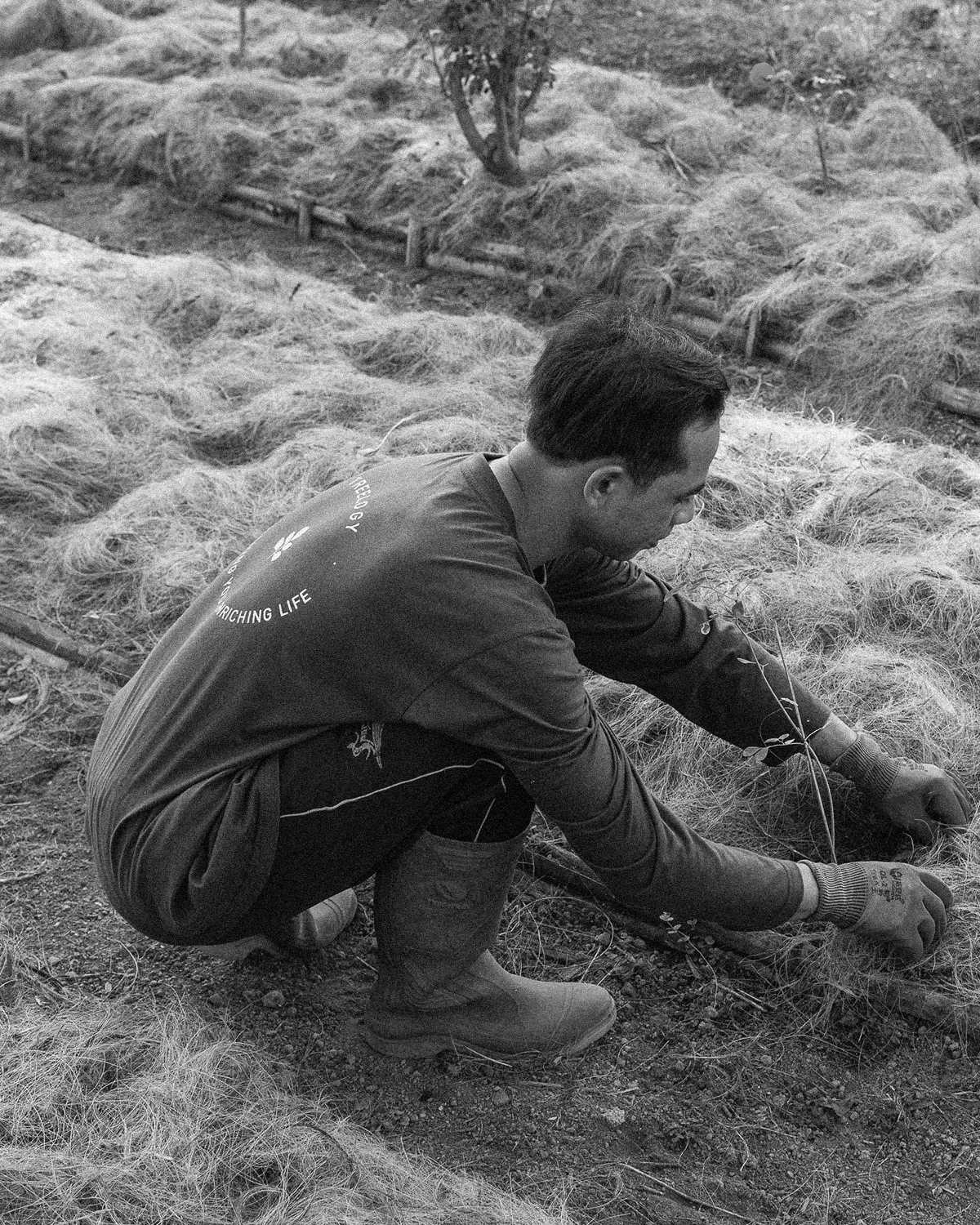
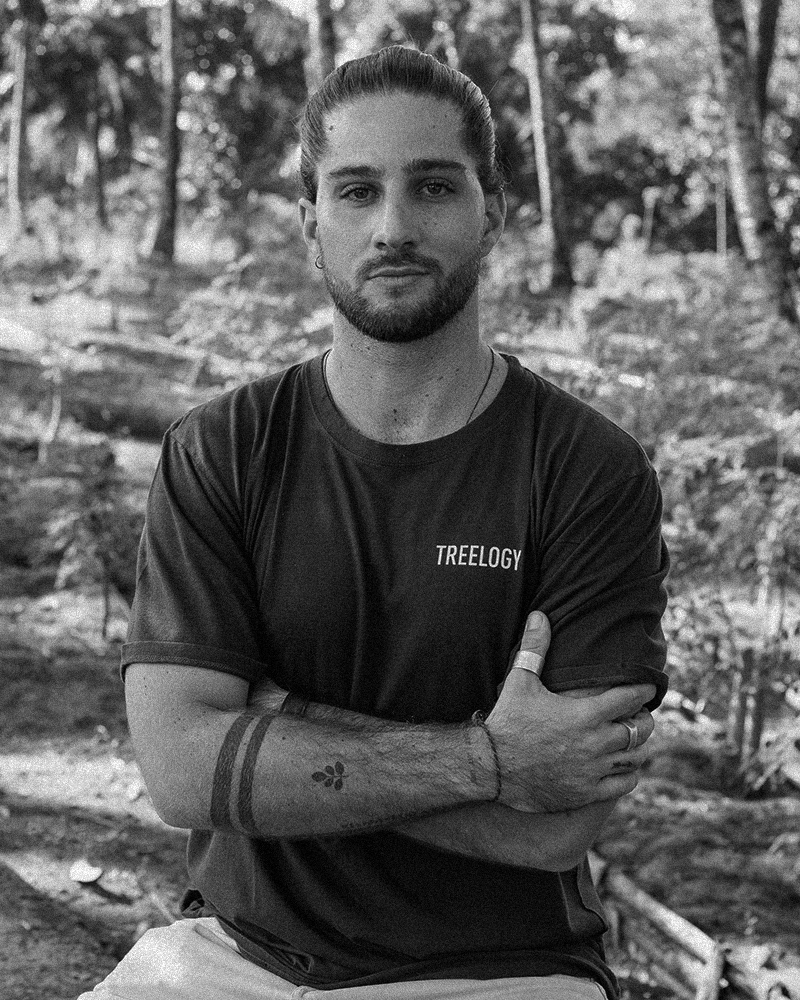
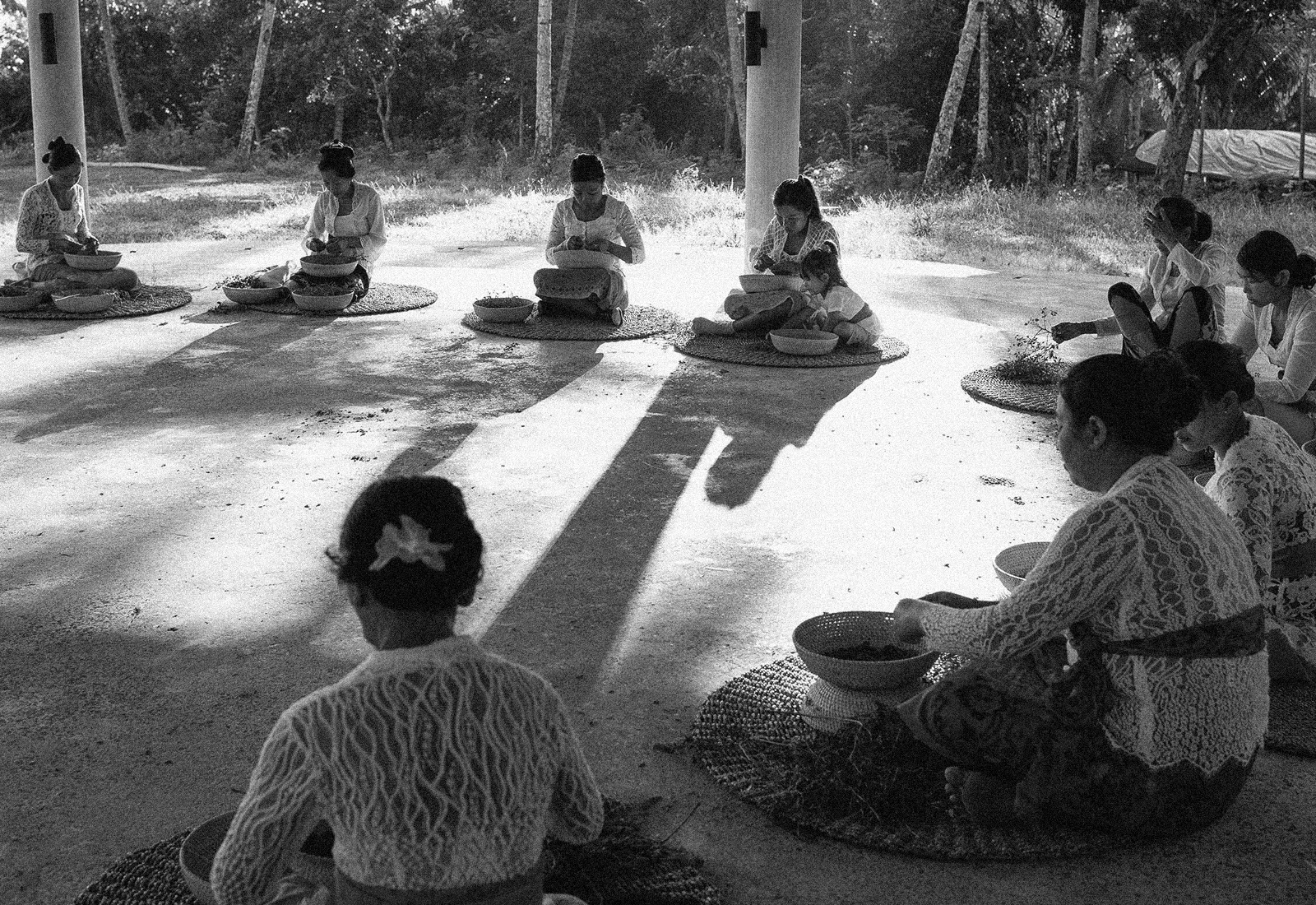
What are some of the health benefits of Moringa that people should know about?
Moringa is often called the miracle tree — and for good reason. It contains 46 antioxidants, 36 anti-inflammatories, 13 vitamins, 10 minerals, and all essential amino acids. Its fiber aids digestion, its antioxidants slow cell aging, and it helps regulate blood pressure and blood sugar. For nursing mothers, it even boosts milk quality and supply. From children to the elderly, it’s a powerful support for daily health.
What impact does Treelogy hope to create — in Bali and beyond?
We want to nourish lives — through the soil, through our communities, and through every tin of Moringa we produce. Treelogy isn’t just about a product. It’s about showing that farming can be elegant, that ethics and aesthetics can co-exist, and that regeneration can be both a business model and a cultural shift.
Tourism has helped open Bali to the world, but it’s also brought pressure. We’re seeing it now — in water shortages, in disappearing culture. We believe another way is possible. We’re not here to shout solutions — we’re here to show them.
EXPLORE THE PUNCH

